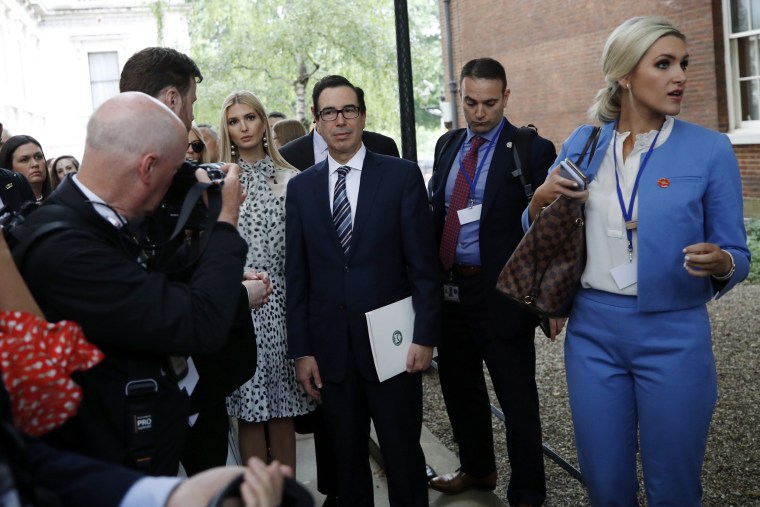WASHINGTON — The Trump administration Tuesday introduced new travel restrictions on U.S. citizens visiting Cuba, prohibiting stops by cruise ships and blocking organized tour groups.
Citing Cuba's domestic "repression" and its support for the regime of Nicolás Maduro in Venezuela, the Trump administration said the measures are designed to prevent Cuba's military and security services from profiting off of the country's tourism industry.
"Veiled tourism has served to line the pockets of the Cuban military, the very same people supporting Nicolás Maduro in Venezuela and repressing the Cuban people on the island," the Department of State said in a statement.
The Department of the Treasury and the State Department said group educational or cultural trips to Cuba, or "people-to-people" travel, would no longer be permitted.
"It kills the people-to-people category, which is the most common way for the average American to travel to Cuba," said Collin Laverty, head of Cuba Educational Travel, one of the largest Cuba travel companies in the United States.
The restrictions will mean an end to cruise ship stops for U.S. tourists, as well as visits by yachts and private and corporate aircraft.
The administration did not say whether the rules would affect U.S. airlines that recently began to fly again to the island.
The changes take effect Wednesday, but Americans who have already booked a flight, reserved a room or generally "completed at least one travel-related transaction" will be permitted to travel to the island. Cruise lines and other tourism businesses said they were still assessing the impact of the new restrictions.
John Bolton, President Donald Trump's national security adviser, signaled plans to restrict travel in a speech in April to veterans of the 1961 Bay of Pigs invasion that ended in failure.
"We will continue to take actions to restrict the Cuban regime's access to U.S. dollars," Bolton said in a tweet Tuesday.
Since Trump entered office in 2017, his administration has staked out a tougher line on Cuba and reimposed sanctions and restrictions eased under his predecessor as president, Barack Obama, who restored diplomatic relations with Cuba in 2015.
Trump's aggressive stance on Cuba and Venezuela could play well among a segment of Cuban American voters in Florida, a group he has sought to cultivate as he prepares for the 2020 U.S. presidential election.
"Cuba continues to play a destabilizing role in the Western Hemisphere, providing a communist foothold in the region and propping up U.S. adversaries in places like Venezuela and Nicaragua by fomenting instability, undermining the rule of law, and suppressing democratic processes," Treasury Secretary Steven Mnuchin said in a statement. "This administration has made a strategic decision to reverse the loosening of sanctions and other restrictions on the Cuban regime."
The Trump administration in April announced it would allow lawsuits to be filed against foreign firms operating on properties Cuba seized from Americans after the 1959 revolution. Washington has maintained a trade blockade against Cuba since the early 1960s.
Cuban Foreign Minister Bruno Rodriguez condemned the new travel restrictions, accusing the Trump administration of trying to stifle the country's economy and damage the standard of living of Cubans for political gain. "They'll fail again," he tweeted.
FOLLOW NBC LATINO ON FACEBOOK, TWITTER AND INSTAGRAM.


